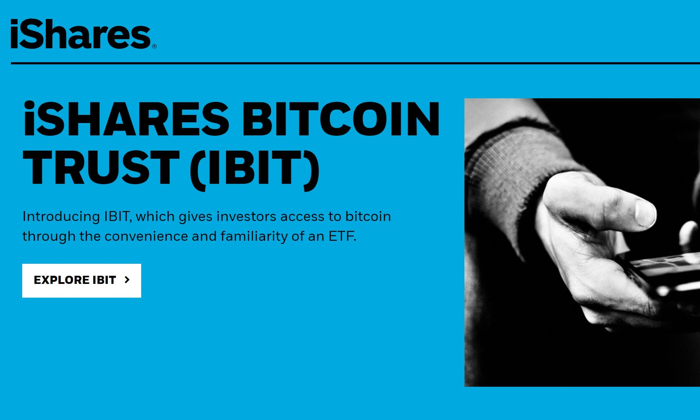GameStop’s foray into cryptocurrency with its Bitcoin strategy has sparked a wave of skepticism among investors, particularly in light of recent struggles with GameStop stock drop and ongoing store closures. The bold announcement to invest proceeds from a $1.3 billion convertible bond sale into Bitcoin was met with mixed reactions, leading to a notable decline in stock value. As investors weigh the risks of this new financial strategy, concerns about the viability of GameStop’s core retail operations loom large. The uncertain implications of cryptocurrency speculation on GameStop’s future compound the anxieties surrounding this shift. With such a significant pivot from its traditional model, it remains to be seen how effective GameStop’s new financial strategy truly is in a rapidly evolving market environment.
GameStop’s recent venture into the digital currency landscape with its cryptocurrency strategy has raised eyebrows amid fears of further retail disruptions. This move comes on the heels of a substantial drop in stock prices and announcements of additional store closures that have left investors questioning the company’s operational direction. The shift towards investing in Bitcoin signals a drastic change from GameStop’s typical financial practices and suggests a new identity rooted in the volatile realm of cryptocurrencies. Although this strategic fork may hold potential for future growth, it also invites scrutiny of the company’s ability to adapt effectively to such speculative investments. As GameStop navigates through these turbulent waters, the alignment of its financial aspirations with the realities of its retail challenges will be critical for its survival.
Understanding GameStop’s Bitcoin Strategy
GameStop’s recent announcement to invest in Bitcoin via a $1.3 billion convertible bond sale marks a pivotal shift in its operational framework. While the company’s foray into the cryptocurrency market aims to attract a new demographic of investors, it has raised concerns regarding the viability of its core retail operations. Investors are wary of this dual approach, as the sudden embrace of Bitcoin comes amidst a backdrop of significant store closures and a 25% drop in stock value. The question arises: can GameStop successfully balance its retail legacy while navigating the speculative waters of cryptocurrency?
Experts note that this decision to pivot towards Bitcoin could either rejuvenate GameStop’s financial strategy or further deteriorate confidence among its investors. The potential for substantial returns in the cryptocurrency market is enticing, yet the associated risks of cryptocurrency speculation cannot be ignored. Without a clear and articulated plan that reconciles its traditional retail challenges with new digital investments, GameStop’s strategy remains shrouded in skepticism.
Impact of Store Closures on GameStop’s Future
GameStop’s announcement of additional store closures this year is undoubtedly alarming for stakeholders who view the physical retail model as integral to the company’s brand identity. Despite brief periods of stock surges fueled by investor enthusiasm, the reality of declining foot traffic and sales, exacerbated by the implications of COVID-19, necessitates a hard look at operational sustainability. As GameStop prioritizes digital transitions, the impact of these closures poses questions about its ability to pivot while maintaining customer loyalty.
Closure of physical locations can severely trench a brand’s presence within the community, leading to a weakened emotional connection with consumers. Analysts project that a massive cutback in storefronts may alienate the traditional gaming demographic, leaving it in a vulnerable position amid new competitors in the digital space. Ultimately, while shifting resources towards Bitcoin may create opportunities for financial gains, the underlying challenges stemming from retail disruptions need urgent and actionable solutions to ensure long-term viability.
GameStop’s Stock Drop: Reactions and Implications
The pronounced drop of GameStop’s stock, plunging over 15% on March 27, underscores the volatility surrounding perceived corporate strategies. As investors witnessed this swift decline, the uncertainty prompted a comprehensive reassessment of GameStop’s future performance in an already tumultuous market climate. While the company aims to leverage proceeds from its bond sale for an investment in Bitcoin, the lack of a strong operational foundation raises pertinent questions about its strategic coherence in both the retail and digital arenas.
Market analysts emphasize that the immediate reaction to the Bitcoin proposal reflects broader investor anxiety about GameStop’s capacity for sustainable growth. The stock’s ongoing decline, now totaling over 23% for the year, illustrates the persistent skepticism regarding the company’s direction and its financial strategy. Unless equipped with a robust framework that supports these game-changing investments, GameStop may continue to oscillate under pressure, further eroding investor confidence.
Investing in Bitcoin: Mixed Perceptions and Considerations
Investing in Bitcoin as part of GameStop’s strategy appears to be a double-edged sword. On one hand, the allure of rapid value appreciation in cryptocurrencies presents GameStop with the potential to dramatically rethink its financial strategy. However, such speculation mandates a deep understanding of market trends and volatility, particularly for a company already grappling with challenges in its core operations. In a marketplace where Bitcoin prices can fluctuate drastically, the long-term implications of such an investment remain largely unpredictable.
Moreover, the strategic pivot towards cryptocurrency speculation could alienate traditional investors who may be skeptical of volatility and prefer stable, tangible assets. As GameStop endeavors to redefine its identity in the rapidly evolving digital economy, it must carefully approach its investments in Bitcoin. The potential for financial transformation is present, but it hinges on clear communication and strategic foresight that aligns both traditional retail and speculative ventures to ensure comprehensive growth.
Investor Sentiment Surrounding GameStop’s Future Directions
The aggregate apprehension from investors surrounding GameStop’s strategic directions stems not only from its recent stock drop but also from the multifaceted concerns regarding its operational efficiencies. Investor sentiment has shifted towards skepticism, with many questioning the timing of its shift towards Bitcoin and the rationale behind such a significant pivot in the face of ongoing store closures. As the excitement surrounding the stock’s previous surge begins to fade, the loyal fanbase and retail investors must reconcile their expectations with the new realities imposed by corporate decision-making.
The dual approach of managing Bitcoin investments along with traditional retail operations needs thorough strategic alignment. Without addressing the concerns of its core shareholders and mitigating the fears tied to operational viability, GameStop could find itself at risk of losing credibility. Ensuring a balanced approach will be paramount for fostering a positive investor atmosphere moving forward.
The Challenges of Transitioning to a Digital-Centric Strategy
GameStop’s endeavor to adopt a more digital-focused strategy via Bitcoin investments represents a critical turning point amidst challenges faced in the physical retail space. The friction between the need to modernize and uphold a legacy brand is palpable, leaving stakeholders to ponder the implications of such a shift. An aggressive transition into the cryptocurrency arena requires not just investment but also a comprehensive restructuring of the company’s vision and operational strategies.
Transitioning to a digital-centric model involves intricate planning and execution that GmeStop must navigate to avoid alienating its current customer base. The realities of the gaming market and cryptocurrency are interlinked, yet starkly different. GameStop must ultimately balance innovative ventures while ensuring operational clarity to foster confidence among its consumers and investors alike.
Evaluating GameStop’s Financial Strategy in a Changing Landscape
The current financial strategy employed by GameStop must encapsulate modern trends while confronting age-old retail woes. As the company engages in Bitcoin investments, the need for a thorough evaluation becomes apparent. Is the embrace of cryptocurrency sufficient to shield against the operational disruptions from store closures? GameStop’s financial architecture will require a novel approach that harmonizes traditional retail mechanics with emerging digital assets, ensuring it remains adaptable in a turbulent market landscape.
Simultaneously, investors demand transparency that goes beyond financial forecasts. Questions regarding asset liquidity, the management of Bitcoin volatility, and the correlation between digital investments and retail sales need addressing. A well-rounded financial strategy that articulates clearly how GameStop will navigate these pressures will prove pivotal in restoring faith in its capabilities as it intertwines both retail survival and digital innovation.
Navigating Market Confidence Against the Backdrop of Store Closures
Despite the burgeoning excitement surrounding GameStop’s venture into Bitcoin, the market confidence is undeniably fragile amid the waves of store closures. Stakeholders are left grappling with stark contrasts between ambition and reality, as the significant reduction in physical presence raises questions about sustained engagement with its consumer base. Concerns about GameStop’s ability to rebirth its identity while facing retail limitations hint at potential vulnerabilities that can influence market perception negatively.
Restoring market confidence while grappling with operational shutdowns necessitates innovative thinking and transparency from leadership. GameStop must actively engage shareholders and communicate clearly how shifting assets toward digital realms will not only provide a safety net but also create opportunities for revitalization as a brand. The juxtaposition of store closures against a Bitcoin strategy could theoretically steer change, yet consistent messaging and operational clarity will remain essential.
Lessons from Other Companies: Adapting to Cryptocurrency Trends
Many companies across various sectors have touted successful transitions into cryptocurrency, presenting GameStop with case studies to emulate. However, the unique challenges faced by GameStop necessitate an individualized strategic plan that takes into account its duality of retail and digital aspirations. Observing how companies have successfully navigated cryptocurrency trends provides insightful lessons on how to approach operational pivots without alienating core business practices.
GameStop can draw on experiences from firms that have integrated cryptocurrency investments while simultaneously nurturing their traditional business models. By analyzing what works and what doesn’t across industries, GameStop can refine its strategy and construct a blueprint that sets realistic expectations for stakeholders. Ultimately, aligning operational strategy with market trends will enhance GameStop’s potential to thrive amid evolving investment landscapes.
Frequently Asked Questions
How is GameStop’s Bitcoin strategy affecting its stock performance?
GameStop’s Bitcoin strategy has coincided with a significant decline in its stock, which dropped over 15% on March 27, 2025. Investors expressed skepticism regarding the company’s ability to manage its core retail operational strategy alongside its new cryptocurrency investments. This skepticism is largely due to concerns surrounding GameStop’s financial strategy and its unexpected shift toward Bitcoin.
What are the implications of GameStop’s store closures on its Bitcoin strategy?
GameStop’s announcement of significant store closures indicates challenges in its retail operations, raising questions about how these changes will coexist with its Bitcoin strategy. Investors are concerned that focusing on cryptocurrency investments may detract from resolving ongoing issues in the store-based sales model, ultimately impacting the company’s overall financial strategy.
Can GameStop’s investment in Bitcoin improve its financial situation?
If GameStop’s investment in Bitcoin proves successful, it could potentially enhance the company’s financial situation by diversifying its revenue streams and strengthening its balance sheet. However, the risk is considerable, as fluctuating Bitcoin prices may further strain GameStop’s finances, especially in light of its recent stock drop.
What concerns are investors voicing regarding GameStop’s cryptocurrency speculation?
Investors are voicing concerns that GameStop’s strategy to engage in cryptocurrency speculation might overshadow its retail operations, particularly given the recent store closures. The abrupt transition towards Bitcoin has left many questioning the clarity of the company’s long-term financial strategy and operational efficacy.
Why has GameStop’s entry into the Bitcoin market been criticized?
GameStop’s late entry into the Bitcoin market has drawn criticism because analysts believe the timing could have been better, suggesting it would have made more sense to adopt a Bitcoin strategy six to nine months earlier when market conditions were more favorable. This delay has contributed to doubts about the company’s awareness and agility in adapting its financial strategy.
What financial risks are associated with GameStop’s Bitcoin strategy amidst its stock drop?
GameStop’s Bitcoin strategy involves taking on debt to invest in cryptocurrency without imposing interest payments, which presents financial risks. If Bitcoin falls in value, the company could face heightened financial instability, compounding the pressures already felt from its stock drop and ongoing concerns over operational effectiveness.
| Key Point | Details |
|---|---|
| Stock Decline | GameStop shares dropped over 15% on March 27, following news of the company’s Bitcoin investment plans. |
| Investment Announcement | GameStop announced a plan to invest in Bitcoin using proceeds from a $1.3 billion convertible bond sale. |
| Store Closures | The company plans to close a significant number of physical stores, signaling challenges in its core retail business. |
| Investor Skepticism | Concerns have arisen about the unclear long-term strategy associated with Bitcoin investment and retail operations. |
| Timing Issues | Analysts question the timing of the Bitcoin strategy; earlier adoption may have been more beneficial. |
Summary
GameStop’s Bitcoin strategy has sparked skepticism among investors, primarily due to concerns over the company’s operational strategy and upcoming store closures. The drop in stock price reflects uncertainty regarding how this cryptocurrency investment aligns with GameStop’s long-term goals. As the company navigates this bold move, clarity on its strategic direction will be crucial for restoring investor confidence.
GameStop’s recent Bitcoin strategy has stirred a mix of skepticism and intrigue among investors, especially as concerns about the company’s overall financial health mount. Following a significant announcement to invest in Bitcoin through funds raised from a $1.3 billion bond sale, the company’s stock suffered a staggering drop of over 15%. This sharp decline came in the wake of rising fears surrounding GameStop’s operational challenges, particularly with multiple store closures on the horizon. With the landscape of cryptocurrency speculation evolving, GameStop’s pivot towards investing in Bitcoin raises questions about its long-term financial strategy. As retail investors grapple with these developments, the intersection of GameStop’s stock drop and its bold Bitcoin plans could redefine the future of the gaming retailer amid a rapidly changing market.
The recent developments at GameStop highlight a pivotal moment in which the company seeks to redefine its market identity through cryptocurrency investments. As GameStop navigates the complexities of its stock volatility and store closures, the decision to pivot towards Bitcoin reflects a broader trend in digital finance. Amid growing concerns over operational effectiveness, investors are left wondering whether this venture into crypto could salvage or further undermine GameStop’s reputation. The strategic shift indicates a desire to innovate and stay relevant in an increasingly competitive landscape of digital asset speculation. Ultimately, how successfully GameStop manages this transformation may significantly impact its future in both retail and blockchain investment arenas.















